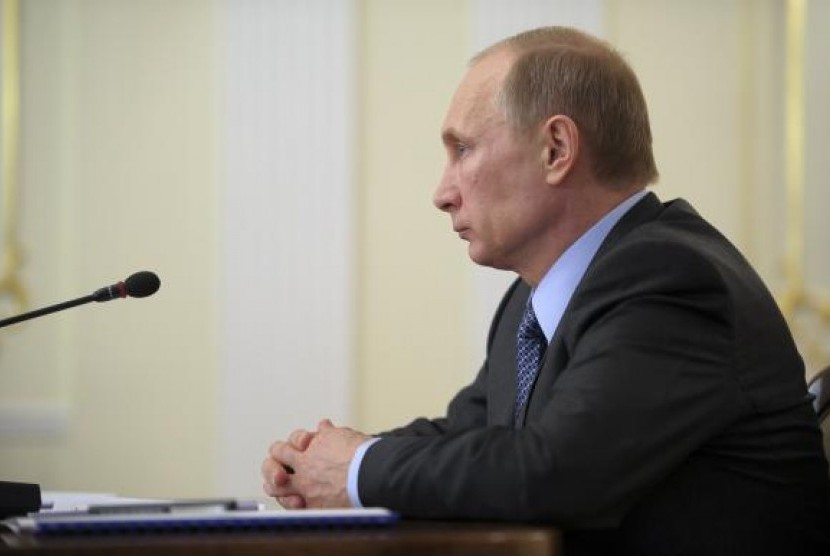REPUBLIKA.CO.ID, SHANGHAI -- Chinese President Xi Jinping and visiting Russian leader Vladimir Putin pledged Tuesday to build ties between the two UN Security Council members, who both face international criticism and territorial disputes.
Putin is visiting China for the first time since Xi took office last year to launch a week of joint naval exercises in the East China Sea and attend an Asian security summit.
Russia's relations with the United States and European Union have plunged to a post-Cold War low in recent months over its seizure of Crimea and Western accusations that Moscow is fomenting unrest in the east of Ukraine.
At the same time, Beijing is bickering with neighbors over maritime territorial disputes, including Vietnam, Japan and the Philippines.
Xi, who called Putin "my old friend" as they met for talks in Shanghai, said building a strategic partnership was a necessary choice for developing a multi-polar world, the official Xinhua news agency reported.
Putin called for boosting bilateral trade to $100 billion by 2015, up from nearly $90 billion last year, through cooperation in the aviation, aerospace, manufacturing and energy sectors, Xinhua said.
The two countries signed a "large" number of agreements, Xinhua said, but did not immediately offer details.
Officials from both countries had said companies were close to completing a long-delayed deal for Russia to export natural gas to energy-hungry China, as Moscow diversifies away from the European market, but price was still a sticking point.
"For the Russians, it is much more about showing 'We have other options... We've got a very strong relationship with China'," said Raffaello Pantucci, senior research fellow at the Royal United Services Institute for Defence and Security Studies in London.
The naval show of force will include "live fire" drills and Pantucci added: "The Chinese are much more agitated about what happens on the sea and one sees support there from Russia."
The two countries are both veto-wielding permanent members of the UN Security Council, are regularly criticized by human rights groups, and have often worked together to counter the United States on a range of issues.
They were at times close allies during the Cold War, when China and the then-Soviet Union was both communist.
But a state-run Chinese newspaper on Tuesday denied that the pursuing of closer ties with Russia was targeted at the West, including the United States.
"Closer relations are not directed at any third party but play an important role in supporting each other in safeguarding strategic space and avoiding external pressure," said the Global Times, which is known for its nationalistic editorial stance.
The Chinese and Russian leaders will on Wednesday attend the formal opening of the Conference on Interaction and Confidence Building Measures in Asia, a little-known Asian security forum, at a time when China has locked horns with its Asian neighbors over disputed territory.
Relations between Beijing and Hanoi have worsened after China's move earlier this month to send a deep-water oil drilling rig into contested waters in the South China Sea, sparking violent anti-Chinese protests in Vietnam in which two Chinese were killed.
China and Japan have a long-running feud over disputed islands in the East China Sea, while the Philippines accuses China of reclaiming land on a disputed reef within its exclusive economic zone under a UN convention.


